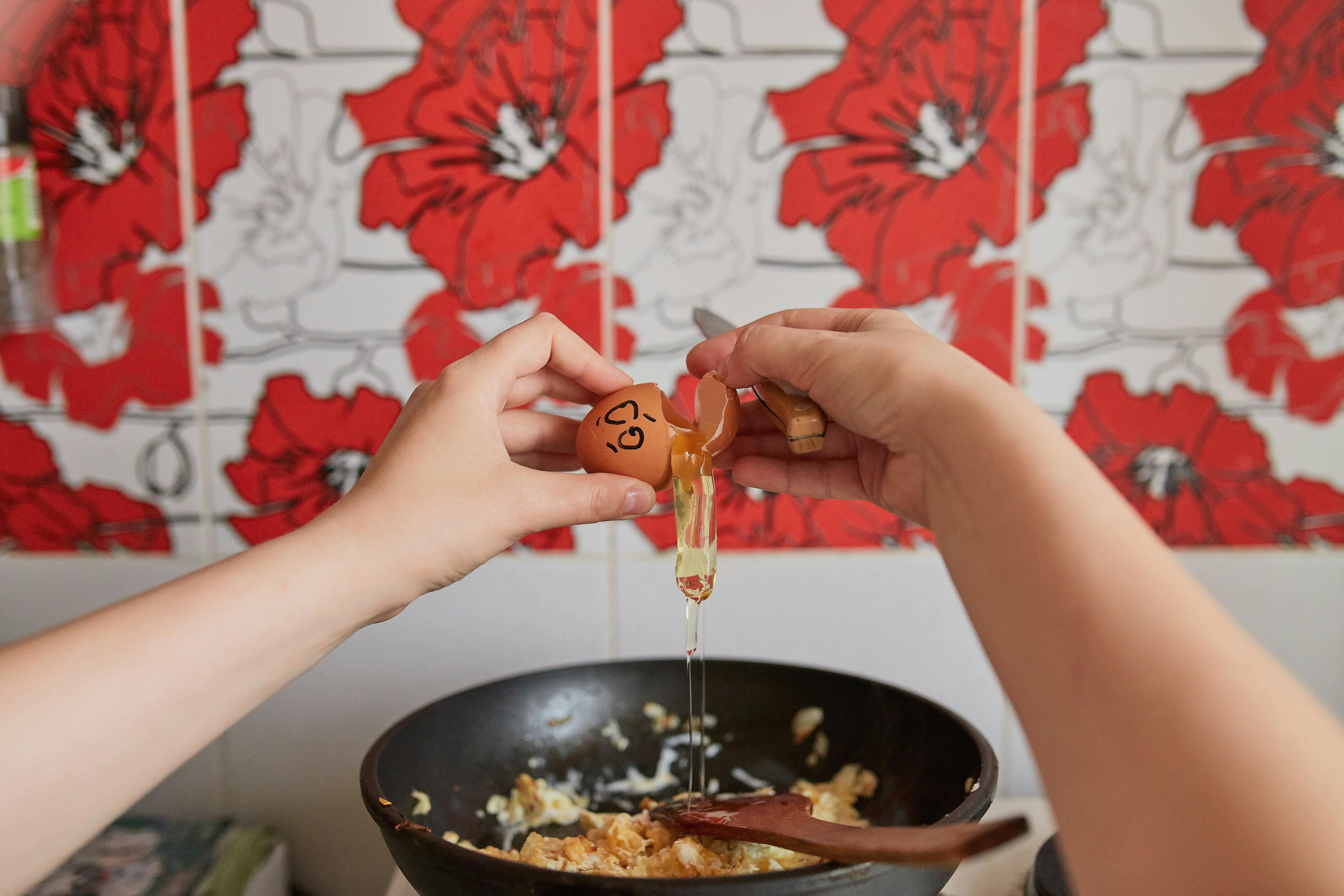**Are They Really Listening? A Deep Dive into Crumbl’s Egg Sourcing Controversy**
In today’s fast-paced world of social media, customer feedback is more accessible—and louder—than ever. Brands often tout their commitment to ”listening to their customers,” but what happens when the reality doesn’t align with the rhetoric? A recent viral YouTube video takes aim at Crumbl Cookies and its co-founder, Sawyer Hemsley, raising a serious question: Is Crumbl really listening to its customers?
The video criticizes the popular cookie chain for continuing to source eggs from controversial caged systems, despite growing calls from customers—and industry leaders like Krispy Kreme and Dairy Queen—to switch to more humane alternatives. Hemsley’s statement that “we’re always listening to our customers” comes under fire as the narrator challenges Crumbl’s commitment to ethical sourcing, urging viewers to demand action.
This blog post explores the key themes raised in the video, the broader debate over cage-free farming practices, and what it all means for businesses navigating the intersection of ethics, customer demands, and brand promises. So, is Crumbl crumbling under pressure, or will it rise to meet the call for change? Let’s dig in.
The disconnect between promises and practices understanding customer advocacy

There’s often a glaring **disconnect between corporate promises and actual practices**, especially when customer advocacy comes into play. Take Crumbl’s claim that they’re “always listening to our customers” as a prime example—a statement that feels out of sync when thousands of customers are calling for ethical reforms that remain unaddressed. The growing demand for brands to provide more humane and ethical products isn’t misplaced, with industry leaders like Krispy Kreme and Dairy Queen already making the shift to **100% cage-free eggs**. So why is Crumbl lagging behind?
- Customers are urging Crumbl to move away from sourcing eggs from **cruel, overcrowded cages**.
- Competitors have already embraced ethical changes, setting the standard for consumer-driven reform.
- This disconnect raises the question: are customer concerns truly being heard, or is it all lip service?
| Brand | Cage-Free Commitment |
|---|---|
| Krispy Kreme | 100% Cage-Free |
| Dairy Queen | 100% Cage-Free |
| Crumbl | Still Using Caged Eggs |
Examining industry standards how competitors embrace ethical sourcing

Many of Crumbl’s competitors have already taken significant steps towards more **ethical sourcing practices**, setting an example for the industry. Brands such as **Krispy Kreme** and **Dairy Queen** have committed to sourcing 100% cage-free eggs, reflecting a growing consumer demand for humane treatment of animals in food production. This shift highlights the importance of **aligning business operations with customer values**.
Here’s a comparative look at Crumbl’s approach versus its competitors:
| Brand | Sourcing Commitment |
|---|---|
| Krispy Kreme | 100% Cage-Free Eggs |
| Dairy Queen | 100% Cage-Free Eggs |
| Crumbl | Still Sourcing from Caged Facilities |
- **Critics argue** that sticking with outdated sourcing practices reflects poorly on a brand’s commitment to customer feedback.
- **Adopting cage-free policies** could not only improve brand perception but also demonstrate leadership in the cookie industry.
Decoding consumer demands the growing call for humane product choices

The push for **humane product choices** has become impossible for companies to ignore. Despite this, Crumbl has continued sourcing eggs from *cruel, outdated cage systems*, raising eyebrows among customers who demand better. While competitors like Krispy Kreme and Dairy Queen have committed to going 100% cage-free, Crumbl’s approach seems stuck in the past, leaving thousands of voices unanswered.
- Customer Feedback: Overwhelming calls for cruelty-free ingredients.
- Industry Shift: Major brands moving to cage-free practices.
- Crumbl’s Stance: Acknowledges concerns but stays noncommittal.
Here’s how brands measure up when it comes to sourcing humane ingredients:
| Brand | Egg Sourcing Policy |
|---|---|
| Krispy Kreme | 100% Cage-Free |
| Dairy Queen | 100% Cage-Free |
| Crumbl | Still Using Caged Eggs |
Breaking down the cage-free movement its impact on brand trust and loyalty

As consumer awareness around animal welfare continues to grow, the **cage-free movement** is quickly becoming a pivotal point for **brand trust and loyalty**. Despite bold claims from Crumbl’s co-founder, Sawyer Hemley, stating, *“We’re always listening to our customers,”* many feel the company’s continued sourcing of eggs from caged systems tells a different story. The disconnect between words and actions has led to rising criticism, especially when compared to competitors like Krispy Kreme and Dairy Queen, who’ve already committed to going 100% cage-free. For ethically driven consumers, this hesitation raises serious red flags about Crumbl’s priorities.
- **Consumer Expectations:** Thousands of customers are urging Crumbl to transition to more humane sourcing practices.
- **Industry Shifts:** Major brands in the food industry, such as Krispy Kreme and Dairy Queen, have embraced cage-free commitments.
- **Reputational Risk:** Failing to act could alienate Crumbl’s loyal base and weaken its long-term brand image.
Here’s a comparison of commitments across key industry players:
| Brand | Cage-Free Egg Commitment | Customer Sentiment |
|---|---|---|
| Krispy Kreme | 100% by 2026 | Positive |
| Dairy Queen | 100% by 2025 | Encouraging |
| Crumbl Cookies | No commitment | Concerned |
Actionable steps for brands to align values with customer expectations

Brands aiming to resonate deeply with their customer base must prioritize genuine alignment between their practices and consumer values. Here are a few **actionable approaches** that can bridge this critical gap:
- Act on feedback promptly: Listening is not enough—action solidifies trust. When customers express concerns, especially over ethical issues like sourcing practices, respond with tangible commitments.
- Benchmark against industry leaders: Look to peers or competitors who have already addressed similar concerns. For instance, companies like Krispy Kreme and Dairy Queen have transitioned to 100% cage-free eggs, setting a clear precedent.
- Communicate transparently: Use clear, public statements and timelines for any corrective steps. Transparency fosters credibility and assures customers that the brand is accountable.
| Brand | Cage-Free Commitment |
|---|---|
| Krispy Kreme | 100% Cage-Free |
| Dairy Queen | 100% Cage-Free |
| Crumbl | Pending Customer Demand |
To Wrap It Up
As we wrap up this discussion sparked by the YouTube video, *”Crumbl Co-Founder: ‘We’re always listening to our customers’ 🙄🤨🤔”*, it’s clear that the conversation around ethical sourcing and corporate responsibility is far from over. Customers today are more engaged than ever, using their voices to advocate for change—and they’re expecting brands to not only hear them but to take meaningful action.
While Crumbl’s co-founder insists the company is listening, the ongoing debate about cage-free sourcing raises a deeper question: what does “listening” truly mean in the context of a brand’s mission and values? Are words enough, or should actions ultimately define a company’s commitment to its customers?
Let this discussion serve as a reminder of the role we all play in shaping the world we want to live in—whether as consumers, advocates, or decision-makers. After all, every choice, every voice, and every action matters. The question now is: will Crumbl choose to rise to the occasion and join others, like Krispy Kreme and Dairy Queen, in leaving cruel practices behind? Only time will tell.
What are *your* thoughts on the balance between consumer demands and corporate accountability? Share your perspective in the comments below—let’s keep the conversation going. ✍️















































